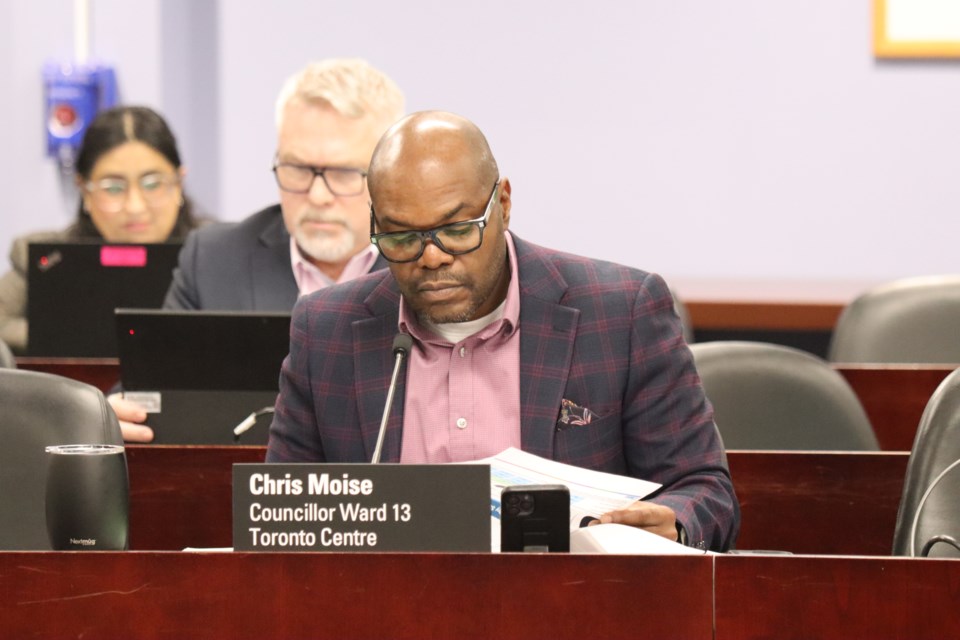Toronto’s board of health is joining the legal battle to keep some safe injection sites open.
On Monday, the board voted to direct the city solicitor to intervene in an ongoing court case against the Doug Ford government’s bill that would force five safe injection sites in Toronto to close by March 31.
Intervenor status, if granted by the Superior Court, would allow the board to participate in the case and offer their viewpoints.
The sites “are an important tool when it comes to addressing addictions,” said Coun. Chris Moise, chair of the board of health, at Monday’s meeting.
However, Health Minister Sylvia Jones is no fan of the move.
“We’ve already seen criminal and violent incidents around these sites — incidents that should never happen near a school or childcare centre. Now that the province is facing litigation aimed at keeping drug injection sites open next to where children learn and play, we have retained a third party to gather additional evidence about the impact of these sites,” Ema Popovic, Jones’s spokesperson, said in a statement.
In December, the Neighbourhood Community Group, which runs the Kensington Market Overdose Prevention site, and two people who use the sites challenged the Ford government’s bill to ban them within 200 metres of schools, child care centres and daycares, arguing it violates the right to life, liberty and security of the person as stated in the Charter of Rights and Freedoms.
Toronto has 10 sites, and five will be forced to close because of the new law.
According to the suit, by closing the sites, users will be forced to consume drugs in unsafe settings, putting their lives at risk. Since the federal government opened the door to safe injection sites in 2017, over 40,000 overdoses have been recorded — including 11,000 in Toronto — with no deaths at the facilities.
“The closure of the sites will undoubtedly result in a significant loss of life,” said Katie Resendes, one of the applicants in the lawsuit, in a December press release. “Those of us that use the sites do not have a death wish as some may think. Please be aware of the devastation that will occur when those who rely on the sites are unable to access them.”
The suit also argues the law violates the constitution’s division of powers, which gives the federal government — not the provinces — “exclusive jurisdiction over criminal law.” The sites are only permitted when the federal government grants an exemption to the Controlled Drugs and Substances Act.
“At the end of the day [safe injection site] users are our citizens and we are obligated … to actually make sure they are supported,” Moise said in an interview.
Since December, the board of health has taken steps to support the lawsuit — such as sharing Toronto Public Health data, records and reports — while advocates have urged them to get more involved.
“If the board does not intervene, in my opinion, that's a real black mark against the city in not responding to a very, very serious health concern,” said former Toronto mayor John Sewell, at Monday’s meeting.
City lawyers also prepared a report on potential legal issues with the suit, but it was not released to the public.
In 2011, the Supreme Court of Canada unanimously ruled the Harper government’s attempts to close a Vancouver-based safe injection site violated the Charter.
The judges wrote that the site “has been proven to save lives with no discernable negative impact on the public safety and health objectives of Canada.”
The Ford government has said its bill is an attempt to deal with the public safety implications that arise from the safe injection sites.
“Communities, parents, and families across Ontario have made it clear that the presence of drug injection sites near schools and daycares is leading to serious safety concern,” said Hannah Jensen, spokesperson for Health Minister Sylvia Jones, in a previous statement.
The province has set aside nearly $400 million to build new facilities to help people dealing with substance abuse and homelessness — without offering any supervised consumption services.
Four new sites, dubbed homelessness and addiction recovery treatment (HART) hubs, will open in the city in the spring.
The new Toronto hubs will be located at 168 Bathurst St. in Queen West, 465 Dundas St. E. in Regent Park and 1156 Danforth Ave. The fourth site will be led by Toronto Public Health and "respond to urgent and complex health needs in Toronto’s downtown core," but its exact location has yet to be announced.
-with files from Jessica Smith Cross
